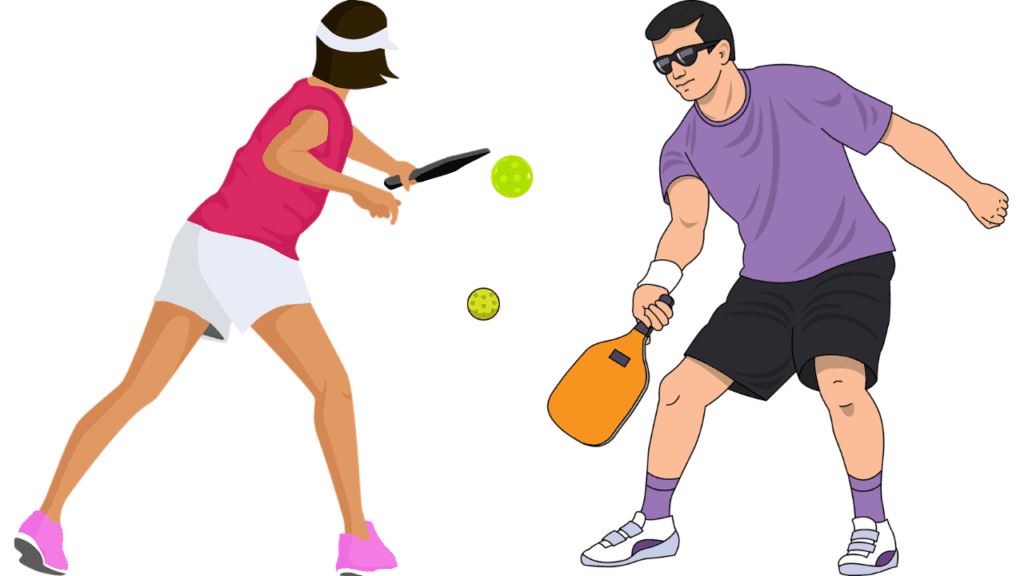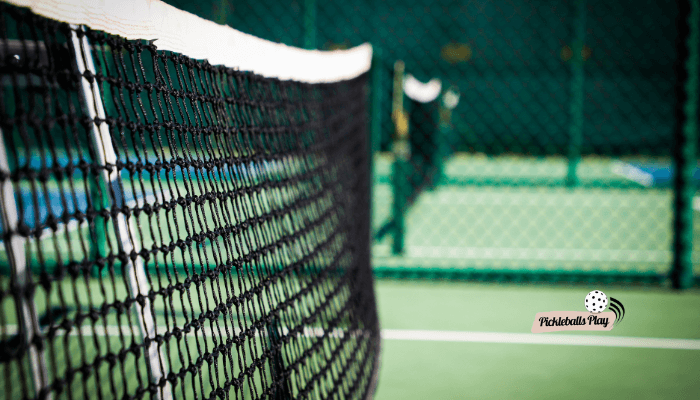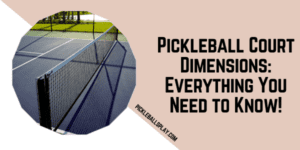Choosing the Right Pickleball Shoes: Why It Matters
Are you new to pickleball and wondering what shoes to wear? Or perhaps you’ve been playing for a while but haven’t given much thought to your footwear. Well, let me tell you, having the right shoes can make all the difference in how you perform on the court.
So, let’s dive into the world of pickleball shoes and find out why choosing the right pair is crucial for comfort and performance!

Are There Special Shoes for Pickleball?
As pickleball continues to gain popularity, the importance of proper footwear becomes evident. Luckily, there are special shoes designed specifically for pickleball that can provide you with the maximum support and grip needed to compete at your highest level.
These pickleball shoes feature non-marking soles for indoor courts and durable materials that can withstand outdoor court surfaces. They also come with cushioning in critical areas to reduce foot fatigue and a reinforced toe box for added protection from impacts.
On top of that, these shoes have strategically placed treads to ensure you can move quickly around the court without slipping or sliding.
Overall, having a pair of dedicated pickleball shoes can give you the edge you need in your game while keeping your feet comfortable so you can stay focused on winning your match!
Types of Pickleball Shoes
Pickleball requires skill, strategy, and a deep understanding of the game. Therefore, choosing the right type of shoe is essential to maximize your performance on the court. There are two main types of pickleball shoes – court shoes and sneakers – each offering their own advantages and disadvantages.
Court Shoes
Court shoes are designed for playing on hard surfaces like concrete or asphalt courts. They have extra cushioning in the soles to absorb impact from running, turning, and jumping during games. These shoes also have more durable outsoles that can handle intense play without wearing out quickly.
Additionally, court shoes feature lateral stability systems that help reduce ankle injuries by keeping your feet stable when changing direction quickly on the court.
On the downside, court shoes tend to be heavier than sneakers due to their additional cushioning and support features. This might make them less ideal for long periods of wear or if you’re prone to foot fatigue after extended play sessions.

Sneakers
Sneakers are versatile footwear options that can be used off-court as casual wear or during gameplay on softer surfaces like grass or clay courts. They tend to have lightweight designs with breathable materials, making them comfortable for longer playing sessions without feeling weighed down by heavy soles.
While many sneakers lack the support features found in court shoes, some brands offer reinforced cushioning around the ankles and heels, along with traction patterns designed specifically for outdoor activities like pickleball.
However, they may need to provide more grip against slippery surfaces, so you might need an additional pair if you plan on playing regularly outdoors.
Are Pickleball Shoes Necessary?
With the rising popularity of pickleball, the question arises: Are pickleball shoes really necessary? While there is no definitive answer, several factors should be considered when deciding if they’re right for you.
Firstly, pickleball shoes provide more traction than regular tennis or running shoes, thanks to their non-marking soles and deeper treads. This can be especially beneficial when playing on outdoor courts that may be slick from rain or dew.
Furthermore, many pickleball shoe designs include extra padding and support, which can help reduce fatigue and protect your feet from potential injuries during play.
Ultimately, it comes down to personal preference. Some players may find that regular tennis or running shoes provide enough grip and comfort during play without the need for specialized footwear. However, if you’re looking for extra grip, cushioning, durability, or stability, investing in pickleball-specific shoes may be worth considering, depending on your budget and playing style.
Do Pickleball Shoes Make a Difference?
Pickleball is a sport that requires the right equipment for optimal performance. And a good pair of pickleball shoes is one of the essential pieces of equipment. They can make a significant difference when playing this sport, providing stability and support that regular athletic shoes cannot.
Pickleball shoes are designed specifically for the game, with features like increased traction, lightweight construction, and extra cushioning in critical areas to reduce fatigue and improve footwork.
As such, they help players move better on the court while providing support and comfort throughout long games or tournaments. Additionally, they help protect your feet from blisters and other injuries caused by improper footwear during intense play.
In short, having dedicated pickleball-specific footwear is essential to any player’s gear arsenal. It may not guarantee victory, but it certainly gives you an edge over opponents still using running shoes!
Wrap Up!
While having special shoes for pickleball may not be necessary, having the proper footwear can enhance your game and protect you from injuries.
Pickleball-specific shoes offer better traction on the court, superior stability and support during lateral movements, and added cushioning for comfort. Investing in a good pair of pickleball shoes is a wise decision to improve your performance on the court while keeping you safe from common foot injuries.
So before you step onto the pickleball court next time, take some time to think about what kind of footwear will serve you best!


